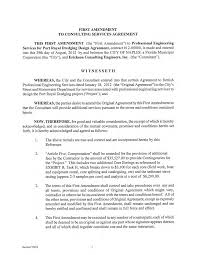
When a company hires an outside consultant to work on their project, it is usually a good idea for the parties to sign an agreement outlining the terms and condition of the relationship. This agreement can protect both parties and ensure that the project runs smoothly.
What is a Consulting Services Contract and what does it mean?
A consulting service agreement is a legal document that establishes the specific scope of the services to be provided, the payment structure and other important details. This document is vital and should be reviewed prior to signing any agreement. It will ensure that both parties are clear about their expectations and avoid any unexpected surprises.
1. Scope of Work and Compensation
Both parties should clearly define the scope and price of the consulting services. This ensures that they know exactly what is being provided and can honour their obligations. This will ensure that services are not sold to the public and are delivered on schedule.

2. Compensation
If the consultant is being employed for a particular period, it's a smart idea to include the amount that will be paid at the end to the consultant. This will provide the client with an estimate of what they can expect to pay, and how to handle any disputes.
3. Non-Disclosure Agreement and Non-Compete
An agreement on consulting services should prohibit the consultant's participation in any form of competition with the company, either during the contract itself or for a period of time after it ends. This will help ensure that the consultant is not jeopardizing the company's assets or reputation without recourse.
4. Agency Intellectual Property and Data & Background Information
It is necessary for the parties to have an agreement that clarifies the ownership rights of Agency intellectual property and data. The agreement should also state that neither party is allowed to use this material without the permission of the agency.
5. Agency Representations and Warranties
A clause should be included in the agreement that details the representations and warranties of the consultants concerning the project. These should contain details such as the scope and completion of the project, as well as the goals and outcomes that will be achieved.

6. Miscellaneous Provisions
Other provisions should also be included that govern the contract and resolve any conflicts that might arise throughout or after the project. These provisions could cover matters such as the governing laws, the resolution of disputes and the assignability and transferability of rights and obligations.
7. Injunctive Relief
The parties agree that injunctive relief will be sought to remedy any breach by either party of the agreement's terms and conditions or covenants. This will ensure that neither party is exposed to additional risk and that any issues can be resolved quickly and efficiently.
FAQ
What should your consulting fees be?
It depends on what you are offering. If you are offering services for free, it is not worth charging anything. You must charge for services or products if you want to sell them.
If you are offering low-quality services, you don't have much to sell. Why should anyone pay for your services?
You may be able to ask for a higher price if you offer high-quality services. This is because people know the value that you provide. It is possible to offer discounts to clients who order multiple packages.
What skills will I need to be a consultant?
An effective consultant must have strong interpersonal skills as well as analytical skills. This is because you could be asked questions or not know what you are doing. You will need to learn how you manage people and solve problems quickly.
Excellent communication skills are also essential. Clients expect a response within 24 hours. They assume that you won't respond if they don't hear from them within 24 hours. It's crucial to keep them informed and make sure they understand everything.
What happens after the consultant completes the job?
After the consultant completes his/her work, the final report will be submitted detailing the findings of their work. This report includes the deliverables and project timelines.
The report will be reviewed and you can decide if the consultant met all your expectations. If you are not satisfied with the consultant's report, you have the option to ask for modifications or to terminate your contract.
Statistics
- So, if you help your clients increase their sales by 33%, then use a word like “revolution” instead of “increase.” (consultingsuccess.com)
- My 10 years of experience and 6-step program have helped over 20 clients boost their sales by an average of 33% in 6 months. (consultingsuccess.com)
- "From there, I told them my rates were going up 25%, this is the new hourly rate, and every single one of them said 'done, fine.' (nerdwallet.com)
- 67% of consultants start their consulting businesses after quitting their jobs, while 33% start while they're still at their jobs. (consultingsuccess.com)
- On average, your program increases the sales team's performance by 33%. (consultingsuccess.com)
External Links
How To
How to start a consulting company and what should I do first?
Start a Consulting Company to make some extra money from home. You don't have to have any business experience. A good place to start your own consulting company is to build a website. After you have built a website, social media platforms such Instagram, Pinterest and LinkedIn will be useful to spread the word about your services.
These tools will allow you to create a marketing plan which includes:
-
Creating content (blogs)
-
Building relationships (contacts)
-
Generating Leads (lead generation forms).
-
Selling products via ecommerce websites
After you have developed your marketing strategy, it's time to find clients willing to pay for your services. Some prefer to connect with people through networking events. Others prefer to use online resources like Craigslist and Kijiji. Your choice is yours.
After you have found new clients, it's important to discuss terms and payment options. These could be hourly fees, retainer arrangements, flat-fee contracts, or other types of fees. It's important to know what you expect before accepting a client so you can communicate clearly throughout the process.
An hourly contract is the most popular type of contract for consulting services. This contract allows you to pay a fixed amount each week or month for certain services. Depending on the type of service you are offering, you may be able to negotiate a discount depending on the length of the contract. It is important to understand the terms of any contract you sign before you sign it.
Next, create invoices and then send them to clients. Invoicing can seem simple until you try it. There are many options for invoices to be sent to your clients. Some prefer to send their invoices directly by email, while others prefer to print and mail hard copies. No matter what method you use, ensure it works for your business!
After you've finished creating invoices, you'll want to collect payments. PayPal is popular because it is easy to use, offers several payment options, and most people prefer it. You can also use Square Cash, Square Cash (Google Wallet), Square Cash, Square Cash, Apple Pay and Venmo as payment processors.
Once you're ready to begin collecting payments, you'll want to set up bank accounts. Separate checking and savings accounts allow you to keep track of income and expenses separately. Automated transfers into your bank account are a great way to pay bills.
While starting a consultancy company may seem daunting, once you master the basics, it becomes easy to manage. Our blog post contains more information on how to start a consulting business.
A consulting business is a great way of making extra money without worrying about your employees. Many consultants work remotely, which means they don't have to deal with office politics or long hours in the office. You have more flexibility than traditional employees because you aren't tied down by work hours.